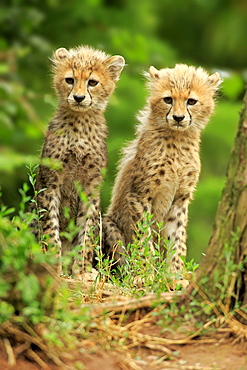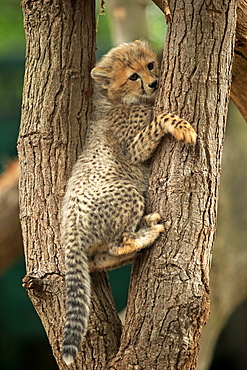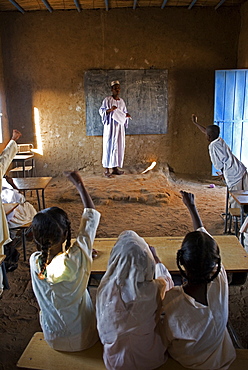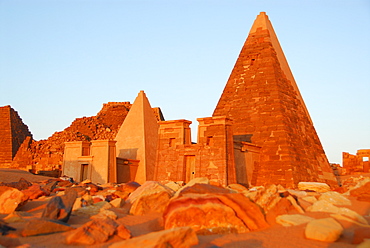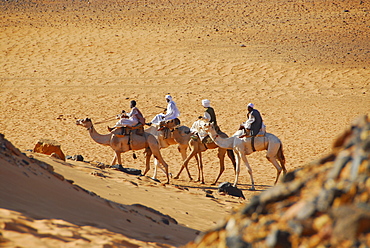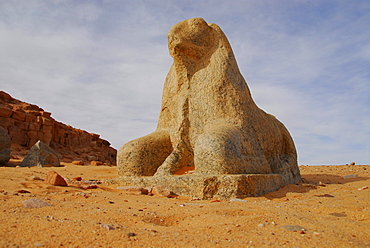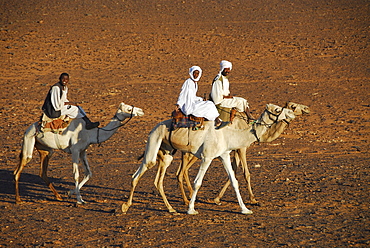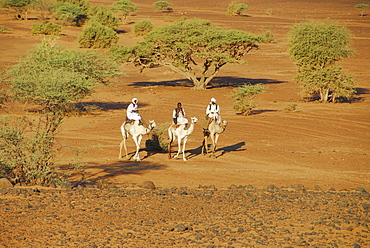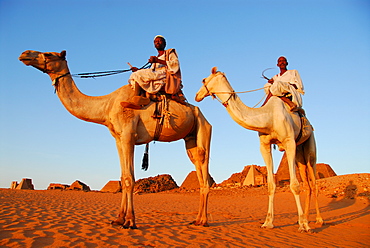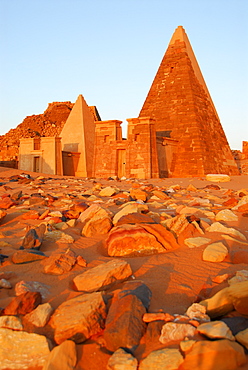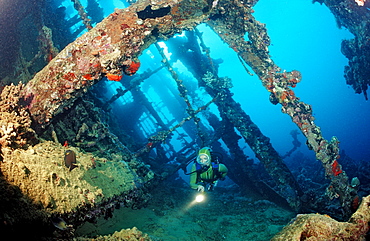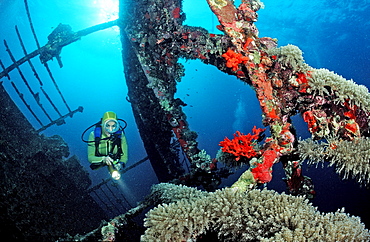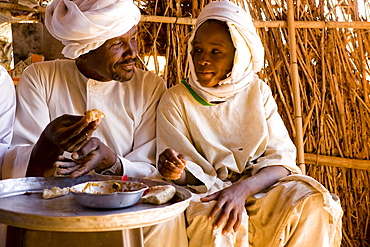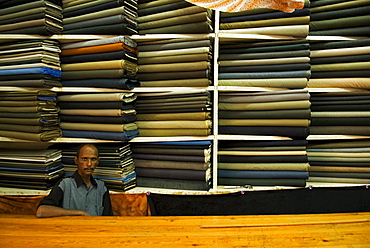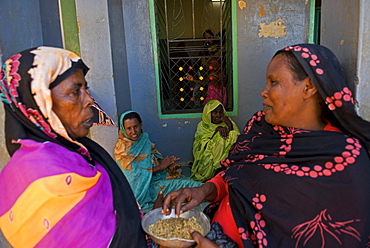Recent searches
Loading...
1116-50333 - Inscriptions of the Prussian archaeological expedition in the Great Enclosure of Musawwarat es-Sufra; Northern State, Sudan
1116-50339 - Field of Kushite royal pyramids and Mount Jebel Barkal at sunrise; Karima, Northern State, Sudan
1116-50335 - Bas-reliefs on the exterior of Apedemak Lion Temple; Musawwarat es-Sufra; Northern State, Sudan
1116-50337 - Tomb of Muhammad Ahmad bin Abd Allah, the Mahdi; Omdurman, Khartoum, Sudan
832-382266 - Sign at the entrance to the royal city of Meroe, Nubia, Nahr an-Nil, Sudan, Africa
832-382262 - Tents in the Nubian Desert in the evening light, near Dongola, Northern State, Nubia, Sudan, Africa
832-382265 - Young girl from the nomadic tribe of the Bush Arian with headgear, Portrait, Bayuda Desert, in Karima, Nubia, Northern Sudan
832-380260 - Young woman in colourful clothes sitting on stone, oasis of Al-Ghazali, Sudan, Africa
832-379673 - Jetty at the lighthouse on the Sanganeb Atoll, Marine Reserve Bur Sudan, UNESCO World Heritage Site, Sudan, Africa
832-379672 - Jetty at the lighthouse on the Sanganeb Atoll, Marine Reserve Bur Sudan, UNESCO World Heritage Site, Sudan, Africa
832-379251 - Sudan cheetah (Acinonyx jubatus soemmeringii), two young animals, siblings, sitting, ten weeks old, occurrence Sudan, captive
832-378933 - Cheetah, Sudan Cheetah, (Acinonyx jubatus soemmeringii), young animal, ten weeks old, in tree, Sudan, captive, Africa
1184-1772 - Aerial of the White Nile River, Juba, South Sudan, Africa
1184-1773 - Local people playing in the waters of the White Nile River, Juba, South Sudan, Africa
1184-1774 - Aerial of the White Nile River, Juba, South Sudan, Africa
857-92162 - A barefoot goldmine worker stands near a shaft in Sudan.
857-92155 - Children in a primary school in El-Ar - a village in northern Sudan.
857-92163 - A gold miner works in a shaft using hand tools in Sudan.
857-92158 - Pupils gather a school courtyard before the lessons start in Sudan.
857-92084 - Shanabla woman dances at a wedding celebration near El Obeid, North Kordofan, Sudan. A nomadic tribe they raise camels.
857-92156 - Children in a primary school in El-Ar - a village in northern Sudan.
857-92164 - A gold miner works in a shaft using hand tools in Sudan.
857-92081 - Camels drink at a water trough at Abu Gadam in the Saharan Desert, Sudan. Think 25 gallons of water in 10 minutes.
857-92154 - A teacher in a classroom in primary school in El-Ar, northern Sudan.
1113-97059 - Pyramids near Jebel Barkal, Napata, Karima, Northern, Sudan
1113-97051 - Colorful gate, Dongola, Northern, Sudan
1113-97050 - Colorful gate, Dongola, Northern, Sudan
1113-97707 - Man preparing tea in his kiosk, Wadi Halfa, Sudan, Africa
832-369066 - Nomads on camels in front of the pyramids of Meroe, Meroe, Sudan
832-297587 - Pyramids in the morning light, Meroe, Sudan, Africa
832-297585 - Temple for the god Amun, Naga, Sudan, Africa
832-297584 - Temple for the god Amun, Naga, Sudan, Africa
832-297598 - Sphinx in front of Amun Temple at Djebel Barkal, near Karima, Sudan, Africa
832-297574 - Bus on a country road near Naga, Sudan, Africa
832-297576 - Bus on country road near Naga, Sudan, Africa
832-297575 - Street sign near Naga archeological site, Sudan, Africa
832-297583 - Lion Temple featuring etchings of the Lion-god Apedemak, Naga, Sudan, Africa
832-297588 - Nomads riding camels, Meroe, Sudan, Africa
832-297151 - Nomads on camels in front of the pyramids of Meroe, Meroe, Sudan
1113-81279 - Two Masked Butterflyfishes, Chaetodon semilarvatus, Sudan, Africa, Red Sea
1113-81311 - Scuba diver diving on Umbria shipwreck, Sudan, Africa, Red Sea, Wingate Reef
1113-81306 - Scuba diver and Car wreck near Blue Belt shipwreck, Sudan, Africa, Red Sea
1113-81312 - Scuba diver diving on Umbria shipwreck, Sudan, Africa, Red Sea, Wingate Reef
1113-81276 - Twobar anemone fishe, Amphiprion bicinctus, Sudan, Africa, Red Sea
1113-81299 - Scuba diver and Red soft corals, Acropora divaricata, Sudan, Africa, Red Sea
1113-81281 - Blackfin barracuda, Sphyraena qenie, Sudan, Africa, Red Sea
1113-81309 - Scuba diver and Truck wreck in Blue Belt shipwreck, Sudan, Africa, Red Sea
1113-81275 - Twobar anemone fishe, Amphiprion bicinctus, Sudan, Africa, Red Sea
1113-81274 - Twobar anemone fishe, Amphiprion bicinctus, Sudan, Africa, Red Sea
1113-81282 - Blackfin barracuda and scuba diver, Sphyraena qenie, Sudan, Africa, Red Sea
857-67765 - A boy helps crush stones in a special stone mill in Sudan. Illegal gold-mining in the region of the fourth cataract of the Nile in northern Sudan. People from the nearby villages work in shallow shafts in the desert. The rocks containing gold are crushed in a special mill. Some of the material is washed with water on the spot but the major part of it is taken to a village. 12/01/2007
857-68233 - Hai el-Arab Souq in Omdurman is the largest souq in Sudan. Everything from food stalls to ironmongers can be found here.
857-69491 - A member of the Shanabla tribe holds up a severed camels head up. The camel will be the main course at this wedding celebration outside El Obeid, Sudan. On February 15, 2006. The Shanabla are nomads and have no lands of their own. They raise camels to sell at market and are dependant on others lands for grazing.
857-68244 - The region of the Fourth Cataract, the most impassable of all rapids of the Nile. Still today the water rapids cannot be crossed by any large boats making the region accessible only via a sandy and rocky desert track. The region is among the most neglected areas in Northern Sudan. Apart from basic educational institutions virtually no public infrastructure such as tarred roads, bridges or ferry boats and hospitals exist.
857-69495 - Shanabla woman sings at a wedding celebration near El Obeid, Sudan. A nomadic tribe they raise camels.
857-69507 - Camel traders and herders sit in a tea hut in a camel market in El Obeid, Sudan
857-68242 - Shopkeeper sitting in his shop, northern Sudan.
857-69490 - Camel traders and herders sit in a tea hut in a camel market in El Obeid, Sudan on February 16, 2006. Yussuf Gamaa, 2nd from L, is a camel herder from Darfur. About 150,000 camels cross over from Sudan into Egypt every year, the majority as cattle as an inexpensive source of protein. Today the camel is both the caravan and the cargo. Camels from this market will travel the Forty Days Road or Darb el-Arbein a 1,200 mile desert trail into Egypt and the oldest trade route in the Sahara. Desert nomads like Yussuf depend on the profitable camel trade for their livelihood.
857-68220 - Hai el-Arab Souq in Omdurman is the largest souq in Sudan. Everything from food stalls to ironmongers can be found here.
857-69509 - Sayyid Abdelbagi at home in El Obeid, Sudan (fourth from right) celebrating the purchase of camels that will go to Egypt.
857-67769 - Sacks filled with gold dust are put together in Sudan. Illegal gold-mining in the region of the fourth cataract of the Nile in northern Sudan. People from the nearby villages work in shallow shafts in the desert. The rocks containing gold are crushed in a special mill. Some of the material is washed with water on the spot but the major part of it is taken to a village. 12/01/2007
857-69540 - Camel herders gather for breakfast tea as they travel through the Sahara desert, Sudan on a camel caravan.
857-68219 - Hai el-Arab Souq in Omdurman is the largest souq in Sudan. Everything from food stalls to ironmongers can be found here.
857-69498 - Shanabla woman sings at a wedding celebration near El Obeid, Sudan. A nomadic tribe they raise camels.
857-68243 - The region of the Fourth Cataract, the most impassable of all rapids of the Nile. Still today the water rapids cannot be crossed by any large boats making the region accessible only via a sandy and rocky desert track. The region is among the most neglected areas in Northern Sudan. Apart from basic educational institutions virtually no public infrastructure such as tarred roads, bridges or ferry boats and hospitals exist.
857-69516 - A camel caravan travels north through the savannah near El Obeid, Sudan. 150,000 camels travel to Egypt yearly.
857-69508 - Camel traders and herders sit in a tea hut in a camel market in El Obeid, Sudan
857-68216 - Every Friday dervishes gather an hour before sunset in front of Sheikh Hamed al-Nil tomb in Omdurman, Sudan to perform a ritual called Zikr (Dhikr). The ceremony starts chanting words of gratitude to the Prophet Mohammed. The audience interacts with the chanters, dancing to the rhythms of the percussion instruments. The dervishes start whirling around. The music, the fragrance of burning incense, the endless repetition of religious chants creates a state of ecstasy, a kind of trance in which human soul is believed to communicate directly with God.
857-69502 - Camel broker Elsean Ahmed Naiem with his son Ali Mohammed Abo in a tea hut at the camel market in El Obeid, Sudan.
857-69512 - Young men of the Darhammid tribe dance in the village of Limrat, Sudan during a wedding celebration. They raise camels.
857-69493 - The bride and women gather at a wedding celebration of the Shanabla tribe near El Obeid, Sudan. The bride is in orange.
857-68218 - Hai el-Arab Souq in Omdurman is the largest souq in Sudan. Everything from food stalls to ironmongers can be found here.
857-68221 - Port Sudan is the main port city of Sudan. Founded by the British in 1909 as the terminus of a rail line linking the Red Sea to the River Nile.
857-68230 - Hai el-Arab Souq in Omdurman is the largest souq in Sudan. Everything from food stalls to ironmongers can be found here.
857-69519 - A camel caravan travels through the Sahara Desert, Sudan.150,000 camels travel from Sudanto Egypt yearly to be sold.
857-68209 - Every Friday dervishes gather an hour before sunset in front of Sheikh Hamed al-Nil tomb in Omdurman, Sudan to perform a ritual called Zikr (Dhikr). The ceremony starts chanting words of gratitude to the Prophet Mohammed. The audience interacts with the chanters, dancing to the rhythms of the percussion instruments. The dervishes start whirling around. The music, the fragrance of burning incense, the endless repetition of religious chants creates a state of ecstasy, a kind of trance in which human soul is believed to communicate directly with God.










